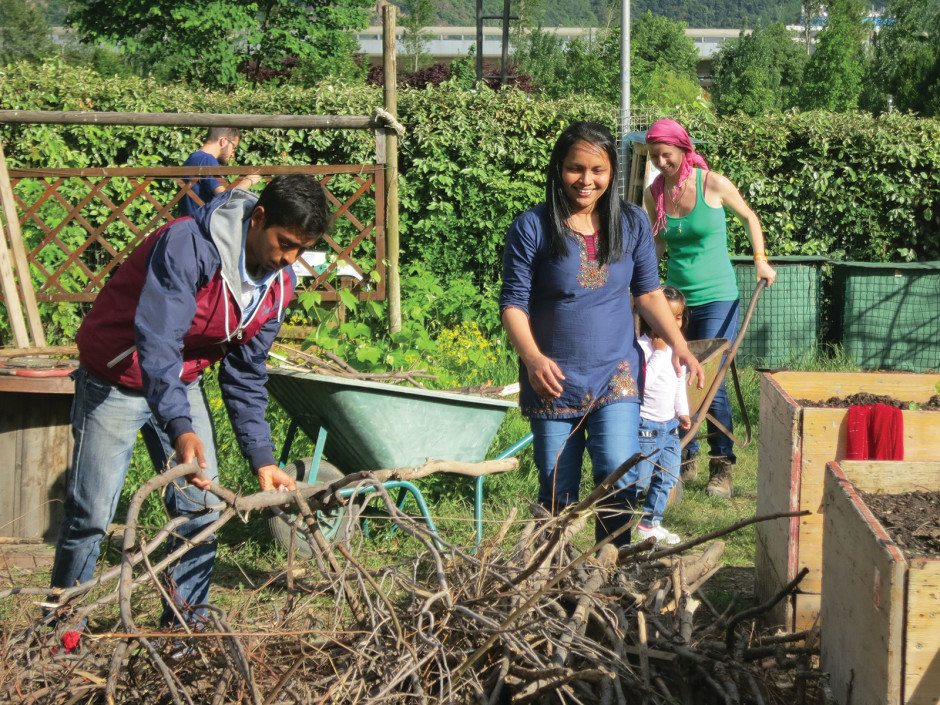The WWWinds of Change
Europe has to shift course if it wants to create more social inclusion, more work, more wealth and more protection for the ecosystem. ‘WWWforEurope’, is trying to determine what that new tack might be… but are we prepared for the destination?
In 1516 the English social philosopher and statesman Thomas More spelled out his vision of an ideal society in his book, ‘Utopia’, about an island in the New World where poverty had been eradicated and social harmony achieved. Although the translation of this Greek word (“no place”) can be seen as a rather cynical wink at the island’s plausibility, More’s innovations for the welfare state exemplified the humanist dreams of an Early Renaissance society that was leaving the punishing grip of feudalism.
Half a millennium later, the world plows on to find More’s elusive island and Europe finds itself in the grips of another kind of feudalism. Even before the financial col-lapse of 2008, politicians and economists (and a good deal of the population) have been aware that a ‘new deal’ would be necessary to keep Europe prosperous, competitive and sustainable in the long term. And since 2012, one group of scientists has been trying hard to define that socio-economic arrangement. It’s a noble pursuit, and if you scratch under the surface a bit, hey, it’s not really all that far from utopia.
Open Waters: ‘WWWforEurope (Welfare, Wealth and Work for Europe)’ is a research consortium determined to help Europe find a model for ‘high-road growth’, one that seeks to intertwine social and ecological goals, employment, gender and cultural aspects into global competition. It’s a colossal, ten-million-Euro project with a matrix of subthemes and over 30 contributing institutions. It’s central tenet? In order for Europe to progress into an era of prosperity, a grounds-up approach will be needed to engage all sectors of society in a substantial change in the way we live.
“Societal challenges are interconnected and cut across different sectors, levels and areas of society,” says Susanne Elsen, pro-fessor of Sociology at the Free University of Bolzano/Bozen. “Transformation has to reach multiple changes. By conduct-ing applied research, the project seeks to impact policies, to change the actual course of economic thinking and policy making.” Elsen is coordinating the University’s contribution to ‘Area 5’ of the project, an examination of the role of regions in socio-ecological transition. For the past three years, she and PhD candidate Judith Schicklinski have been involved in the analysis of 40 cities across Europe to find out to what extent fundamental paradigm shifts towards socio-ecological transition have already been realised.
It seems to be so simple and logical to understand that unlimited economic growth on a planet with finite resources is impossible, yet most of our economy and society still functions along this reasoning.
But perhaps the pair’s most surprising discovery along the way has had to do with the overall implications: its reach has far more potential impact than they thought. Red Skies in the Morning
Red Skies in the Morning “The title [of the project] seems to suggest that economic growth might still lead to work, wealth and welfare,” says Elsen. “Yet, it is contested amongst different scientists whether and for how long this is still the case… it seems to be so simple and logical to understand that unlimited economic growth on a planet with finite resources is impossible, yet most of our economy and society still functions along this reasoning. Never before since the dawn of industrial modernity have the social risks and the threat to people’s survival and bases of life through a hostile economic system been as far-reaching as today.” Scientists can get a little squeamish if they’re asked to challenge the mantra that economic growth is intrinsic to development, especially when in the company of politicians. That’s why Elsen and Schicklinski were dumbstruck to hear Domenico Rossetti di Valdalbero during the opening speeches of WWWforEurope, back in 2012. Rossetti, the DG of Research and Innovation at the European Commission, was unrelenting in his reasoning that the idea of endless economic development is, in fact, nothing but an endgame. He argued for new parameters of development that include participatory democracy, rejecting oil outright, adopting economic measures other than Gross Domestic Product, and abandoning our lifestyles of overconsumption.
Not everyone shares Rossetti’s view so keenly (the project consists of partners from all political camps), however, for Elsen and Schicklinski, a speech of this nature and at this level certainly suggests that WWWforEurope is challenging the ‘growth-is-good’ paradigm.
“It’s astonishing,” says Elsen, “that there are some people like us… who communicate the fact that we are convinced that growth… is not the solution of the problem.”
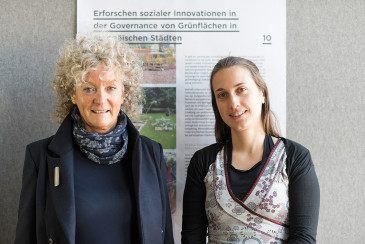
Land, ho!
When Elsen and others began researching complementary systems three decades ago, they were marginalised for their thoughts, or at best, those thoughts were co-opted to turn a profit. Now the terrain has changed: a world (or at least a Europe) without growth is no longer scoffing material. Is there a European Utopia on the horizon? “The project’s aims might sound utopian, and one might think that it will only be a matter of time until this nice idea will be driven out by the capitalist rules of a global market,” Elsen explains. “Yet, the alternative certainly cannot be to lower European standards in environmental protection and social welfare with the argument to remain competitive on the world market on the short run. We are convinced that eco-social transition needs a strong base of positive imagination of possibilities connected with a future beyond growth.” These possibilities include cooperatives, time banking, alternative currencies to foster regional and economic activity, community-supported agriculture, sharing economy, and gift economy. One concrete example can be found in Schicklinski’s research on the current global citizens’ movement to create green spaces out of urban commons. For example, in ‘Edible Cities’ around Europe, citizens are growing and providing their communities with foodstuffs as a way to diminish dependence on the food industry.
For the young Schicklinski, it’s an example that the socio-economic transition is already taking place: “I think there is a general awareness developing, especially among young people, and the deciding factor is education and knowledge. There is a change going on.” “It’s already running. It’s realistic and its real,” confirms Elsen. “All these millions of small approaches are showing a direction. It’s not a complete picture, but these approaches have something in common: using local resources by local people in a sustainable way.”
Related Articles
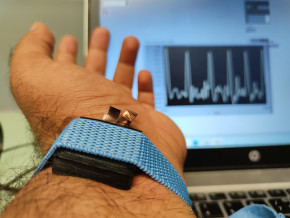
Tecno-prodotti. Creati nuovi sensori triboelettrici nel laboratorio di sensoristica al NOI Techpark
I wearable sono dispositivi ormai imprescindibili nel settore sanitario e sportivo: un mercato in crescita a livello globale che ha bisogno di fonti di energia alternative e sensori affidabili, economici e sostenibili. Il laboratorio Sensing Technologies Lab della Libera Università di Bolzano (unibz) al Parco Tecnologico NOI Techpark ha realizzato un prototipo di dispositivo indossabile autoalimentato che soddisfa tutti questi requisiti. Un progetto nato grazie alla collaborazione con il Center for Sensing Solutions di Eurac Research e l’Advanced Technology Institute dell’Università del Surrey.
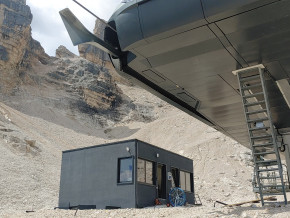
unibz forscht an technologischen Lösungen zur Erhaltung des Permafrostes in den Dolomiten
Wie kann brüchig gewordener Boden in den Dolomiten gekühlt und damit gesichert werden? Am Samstag, den 9. September fand in Cortina d'Ampezzo an der Bergstation der Sesselbahn Pian Ra Valles Bus Tofana die Präsentation des Projekts „Rescue Permafrost " statt. Ein Projekt, das in Zusammenarbeit mit Fachleuten für nachhaltiges Design, darunter einem Forschungsteam für Umweltphysik der unibz, entwickelt wurde. Das gemeinsame Ziel: das gefährliche Auftauen des Permafrosts zu verhindern, ein Phänomen, das aufgrund des globalen Klimawandels immer öfter auftritt. Die Freie Universität Bozen hat nun im Rahmen des Forschungsprojekts eine erste dynamische Analyse der Auswirkungen einer technologischen Lösung zur Kühlung der Bodentemperatur durchgeführt.
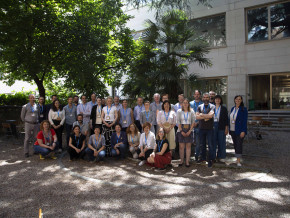
Gesunde Böden dank Partizipation der Bevölkerung: unibz koordiniert Citizen-Science-Projekt ECHO
Die Citizen-Science-Initiative „ECHO - Engaging Citizens in soil science: the road to Healthier Soils" zielt darauf ab, das Wissen und das Bewusstsein der EU-Bürger:innen für die Bodengesundheit über deren aktive Einbeziehung in das Projekt zu verbessern. Mit 16 Teilnehmern aus ganz Europa - 10 führenden Universitäten und Forschungszentren, 4 KMU und 2 Stiftungen - wird ECHO 16.500 Standorte in verschiedenen klimatischen und biogeografischen Regionen bewerten, um seine ehrgeizigen Ziele zu erreichen.
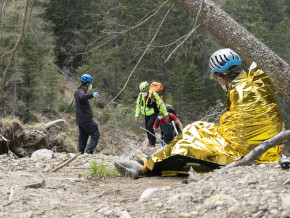
Erstversorgung: Drohnen machen den Unterschied
Die Ergebnisse einer Studie von Eurac Research und der Bergrettung Südtirol liegen vor.
